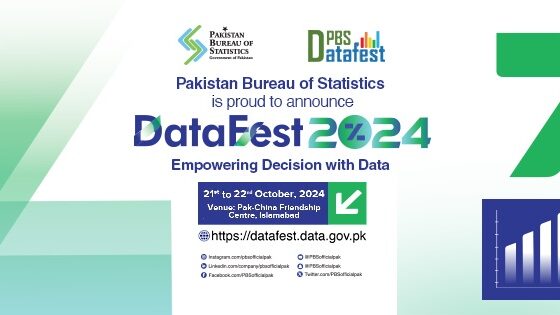Umar Saif is the driving force behind several ICT initiatives aimed to solve real life problems in Pakistan in collaborating with the government. Saif is the founding Vice Chancellor of the Information Technology University Punjab and he has established one of the very first startup incubators in Pakistan called Saif Center of Innovation. He is also the Chairman of Punjab Information Technology Board which is Punjab University’s IT wing and he is the first Pakistani to have won MIT TR 35 Award given to the top 35 young innovators in the world.
Before coming to Pakistan, Umar Saif has been a college professor for many years and acquired PhD in computer sciences from University of Cambridge in England and employment at MIT for four years. Saif has worked on innovative projects that have accelerated the government processes with effective monitoring. These include BitMate, Polly Project, SMSall.pk, See‘n’report, IT systems for Lahore Metro Bus Services and tech incubation centers and several startups with his students at LUMS.
Here he talks in details about his experiences and how IT is reforming government infrastructure in Pakistan.
Implementing Foreign Experience in Pakistani Academia
Great universities have impact beyond research papers and I think it’s one of the most important lessons I have learned while studying abroad. When I came back to Pakistan, I wanted to replicate that experience locally to explore if one could do high impact researches in Pakistan equivalent to top universities like MIT or Cambridge. Many of my friends abroad worked on high impact researches and also had startups that exited with billions of dollars.
Their understanding with the field is related closely to their educational environment and IT culture. I have always been working on replicating the same innovative culture in Pakistan. There is a lot of talent in Pakistan and a huge space to work with in terms of startups, researches and IT projects in collaboration with government with real impact on millions of lives.
Great Talent But Why No Garage Startups in Pakistan in the Past
As a society, we are very welcoming to newer technologies. We adopt latest technologies and solutions when they are introduced in the market, which means we have an understanding of how Information Technology can change lives and so there is huge space for tech-ventures. We have super talented enthusiasts in Pakistan. There are challenges but I have never found myself up against something that I couldn’t easily overcome as these things are not very hard to do in a country like Pakistan where there is always a demand for innovation. However, Pakistan is largely focused on outsourcing work – which is alright as an industry because India too has done remarkably well with outsourcing business models.
You don’t have any source however in Pakistan where two people from a village background get together in a garage and build something like Instagram and sell it out for billions. When I came back there was no sign of software development in this country; there were no signs of good education either. May be what was sort of not prevalent seven years ago was this awareness that it is possible to actually conceive a project and build something with huge impact and profits. Elsewhere in the world, it might involve some degree of R&D and injection of funds from an angel investor.
Pakistan’s First Startup Incubation Center: Saif Center of Innovation (SCI):
I always wanted to have my own startup and I literally started this in my guest house with my laptop and a bunch of secondhand computers along with some of my students who graduated from LUMS. We started a few projects but didn’t get very far – we were looking for the big thing. But my experience told me it was not easy to do it in Pakistan. However, later I moved it to a building gifted by my father where we started populating little startups and we called it Saif Center of Innovation. Young people came to me with ideas – I shared mine and we eventually started these projects with more than moderate success. Now I think a lot of people are doing similar incubation startups and in a few years this number is going to increase significantly.
Plan9 is Funding Entrepreneurs to Build Their Projects
Punjab Information Technology Board is doing 160 projects and Plan9 is one of them. It’s popular and people know about it more as compared to other government initiatives because it impacts them directly. There are several other projects that we have been working on but they do not have direct exposure to masses as they are more focused on policies.
Plan9 is run by PITB’s employees and now I’m beginning to find out new subsidiaries with ITU which is now putting in resources that we are tying in entrepreneurship courses. But it is very much a government backed incubator where government is largely treating it as a grant investment to IT entrepreneurship. The government does not take anything in return because this initiative is solely designed to fund young entrepreneurs and help them build their products.
The Internet Story in Pakistan
The internet architecture is not exceptional in Pakistan for many reasons, but the most fundamental one in my perspective is that the internet architecture in such countries like Pakistan has to lease out to connect to a hub of the internet. We are using internet that is connected via leased out cables, which gives up stream connectivity. Most of the content we want to access is based out of Pakistan and so we end up using that upstream sea link for our internet requirements, given that internet is expensive because under-sea cables have expensive maintenance.
Oftentimes, there is internet disruption which disconnects Pakistan to rest of the world. ISPs charge you with respect to cables they are leasing out. As there is no local content, you are not using local infra structure because you don’t have local content in Pakistan and there is cashing and paying system which is so weak that you have to basically go out on internet and fetch content online. This is what has been a real problem and it is the reason why we worked on BitMate.
BitMate Has Improved P2P Sharing Locally
Our first step was to explore a network that enabled us to cash content locally in Pakistan which we could distribute among local users. It was based on a dial up architecture very similar to feed on net which is pre-internet where I could call your machine with a modem. With that machine, if I call you directly we can really connect to each other with whatever maximum bandwidth that modem enables. We worked in this dimension and later found that we can actually mainstream it by embedding similar concepts in Bit Torrent which is a very powerful P2P network but it has a few problems: It’s based on incentives upload/downloads which means you will have to upload same amount of data that you download otherwise your connection is cut out. This model does not suit Pakistan because we have very low bandwidth locally.
This problem is resolved with BitMate that connects you only to peers that have the same level of upload and download bandwidth, which may possibly be in your own region – it keeps the exchange alive without disconnecting your P2Prelationship with other peers who might disconnect you automatically for not balancing the data exchange. With BitMate, your relationship with other peers improves as you are constantly uploading data, allowing you to experience faster downloads and uploads. Now BitMate has around 45 thousand users in 70 to 80 countries, mostly in the US because users can talk to people from the same region. Users are still downloading our software and we receive great feedback for minimizing the use of under sea cables and overall improving local bandwidth.
Polly Project With 150, 000 Users Generated 2.2 Million Calls
We started Polly Project to build a speech base service for people who cannot read or write. You can just call the service and have similar interaction on phone as we can typically have on internet. For example, if you want to have access to all the jobs that have been put up by government and you want a job of a driver or a gardener or if you don’t have access to internet, Polly Project helps you by recording your message and sending it to five friends with five voice manipulations. There are different voices for the interest of people and to engage them into using technology.
Polly Project has 150,000 people using its services and we have generated about 2.2 million calls and written research papers. One of these researches has also won the best research paper award for conferencing computer human interactions. We added the jobs payload in the paper as well. Statistically, 22,000 people have heard about job advertisement and forwarded it to their friends.
Now we are building a speech base health forum where people can post questions and share experiences and advice. It will open up a platform for people to talk about their issues. After BitMate, Polly has a huge impact socially as well as in academic verification. We are also launching it in India with BabaJobs who wants to use this technology for a broader reach as it has a huge list of jobs from housemaids, drivers and other blue collar jobs.
See n Report Promoted Citizen Journalism Initiative
It was Musharraf era and the media was banned when the lawyers march was in progress. There was no media coverage because of the ban so I took it as an opportunity to experiment my ideas. We bought a few cell phones and we designed brochures to teach people how to send MMS from their cell phones. We trained people who hooked up with all those people going to Islamabad via buses and they took photographs which we published on our website. And we published everything that was being reported – this is how it started.
This startup had a small team which included Sharjeel, Adil and Yasir. We designed it in such a way that it accepted Multimedia Messages very quickly which we then posted online to cover the Long March Protest. It was instantly popular and we received countless calls from media houses including syndication request from BBC and France 24/7 because we were the only media reporting it that time. We also had a similar initiative with Samaa TV’s Citizen Journalism Initiative. We licensed our software and it was run as iSamaa.tv as TV segment. Later, Geo TV also came onboard as Geo Dost, which is now a very successful program with lots of interesting footage. Geo has 1.5 million users of this mobile live TV or reporting and delivery of news.
Umar Saif and Punjab Information Technology Board – Revamping Healthcare, Academia and Governance
The PITB is the IT wing of the board of Punjab and it performs many tasks required to interface with the industry. You have seen with the Plan 9 interaction with the IT industry and related task that is has is to provide people with access to government and bring down the barriers. Besides, our objective is backing the automation with the commerce departments.
PITB has gone through a couple of revamps in the past few years where we have made facility operational park which has 53 tenants. It has an incubator that has the command control center of the Lahore Metro Bus and other very large and very small companies. It’s a technology park that is very well oiled and we are focusing on government automation, making sure it adopts our technologies.
We also worked on dengue control and monitoring under supervision of Chief Minister Punjab, Shahbaz Sharif who has a great understanding of technology and how it can innovate our lifestyle and governance. CM Shahbaz Sharif was conducting meetings at 6 in the morning everyday where we discussed how to avert into the dengue drive in 2012. I happened to join the government at that time and participated in these meetings where people showed slideshows of pictures as evidence of their surveys/works/reports but none of these had time stamps.
It was not possible to judge whether these reports were originally made at mentioned time and place or were old. Therefore, Shahbaz Sharif asked me to develop a system that would let him verify if the work is indeed done as stated in the reports. Next day we proposed that instead of these workers taking photographs from their cameras, they should be trained to use smart phones for taking pictures with GPS tags in the applications, which makes it easier to monitor every report with timeline. We convinced Samsung to donate us 10 phones because the government stuff and processing takes time. We distributed these Smartphones among the district staff and built the application that could let them take the picture with GPS tags before and after they completed their work. Over the time, our application has modified with sophistication. Now you can start a task today and finish it tomorrow, and you can keep a check on available open tabs with better compression.
We are also trying to install a system in the metric board to create transparency. The seating arrangement and grades were sold out before but things have changed now. The newly installed system can scan the GRE of every student and keep a fresh record. The invigilators cannot be chased now because they are now mentioned by bar codes. I have also bought all the technology rights of the text books and we are putting them online for free in Learn Punjab Project.
Besides academia, we have thoroughly automated entire command and control center of Metro Bus. There are systems like e-ticketing and smart card and id token which track every individual passenger. It is a bit complicated but it is essential for eradicating the conductor based services. About 150, 000 people travel everyday via Metro Bus services which also have surveillance cameras. Everything from speed to time is monitored and controlled systematically.
Not Just Paperless Working – Automation Is Essential for Effective Monitoring In Our Country
The biggest challenge government faces today is not just the documentation of archives and digitizing daily reports. It will of course accelerate the processes but it’s not the burning issue, given our current circumstances and governance. At the moment, why we truly need to automate government and private sector is because we need effective monitoring and control.
On a government level, if our systems are not automated it would be tough to monitor every assigned duty being performed. For example, how can you know that all the roads are being cleaned everyday? There are 60,000 school teachers in Punjab; how do we know the school teacher showed on time everyday? How are we to make sure the police officer indeed investigated a particular case without making a false report? There are countless other issues having the same gravity of seriousness. The monitoring of government is the weakest aspect and if you can fix it. You can only have transparency, efficiency and effectiveness in government sector when you are well equipped with monitoring all your process and keeping a progressive check with effectiveness. We have always worked in this dimension.
7 Millions Users With 5 Billion SMS Sent on SMS All Service
When I came back to Pakistan, I wanted to coordinate with my classes for quizzes and announcements to students on short notice or to inform them if a lecture is delayed. I didn’t want to send them email because email system is vey up and down in Pakistan. Students can claim they didn’t check their email. So I worked with a bunch of my students and developed a program that could send an SMS to all of the students and they can also respond to it. We called it Chopal, which means a sitting of people where they chit chat.
It was successful and students started contributing but it was very expensive. I had to buy phone credit cards everyday as we had to pay for each SMS to go through. To solve this, we replaced the phones with modems and now machines are performing all the tasks. We only had ten modems and traffic of one million people who wanted to send texts.
Another student from LUMS later commercialized it and sold it off to a telecom. People kept copying and commercializing it and expanded it better than us. We however continued our services and renamed it as SMS All. Now it costs 50 paisas for reaching 200 people. We have about 7 millions users and so far we have sent more than 5 billion SMS with our application. It was also used in recent election by political parties to mobilize their vote bank. Besides, it was used to teach English, Maths and other activities like running the blood donation drive and spreading news. Idrees and Farooq are running this project as CEO and CTO of the company and they have worked a great deal to make it happen.
With these initiatives, there are more opportunities for growth in future to solve real life issues not just on a local level, but beyond that. Umar Saif is harnessing a promising culture for young IT professionals and the success of all these brilliant ideas have exposed young professionals to profitable opportunities. The growth and stability of PITB’s projects with Umar Saif will certainly result in bigger and broader future of Information Technology in Pakistan.









